Wolfson College achieves milestone as first net zero higher education institution in the UK

How the Oxford community is turning the tide on climate change
One of the UK’s largest heat pump projects, spearheaded by a renowned university, has been showcased in a new video we’ve produced.
Our two-minute video features an ambitious decarbonisation programme at Wolfson College – University of Oxford.

Founded in 1966 and located alongside the River Cherwell, Wolfson College was built on the principles of innovation and research, a characteristic embodied by staff and students alike to the present day. In 2010, the college began work to decarbonise its estate and increase the sustainability of its buildings.
In 2020, following an energy audit, the college set itself the target to reduce their carbon emissions to zero by 2030. The audit revealed that, if nothing was done, the college would emit at least 20,000 tonnes of carbon over the next 20 years. However, upgrades to their dated campus buildings and gas-based heating systems could avoid the scale of this impact.
Now, the college is celebrating exceeding this initial target through achieving net zero in 2024 - six years earlier than planned.
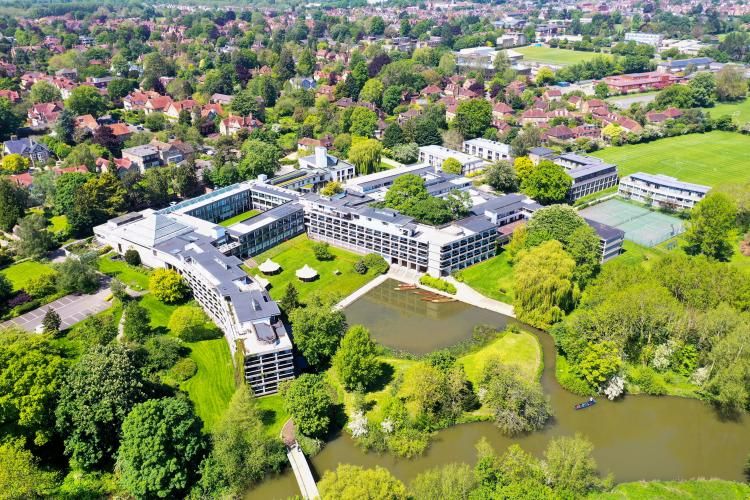
Wolfson College, Oxford
Credit: Vortex Drone
Supported by £5million in grant funding received through Phase 2 of the Public Sector Decarbonisation Scheme, the college was able to complete a project which allowed them to switch from gas to electricity on their main estate, significantly reducing its demand for heat. We deliver the funding for this scheme at Salix on behalf of the Department for Energy Security and Net Zero.
Works included installing seven new air source heat pumps in the underground car park, enhanced electricity supply, a new substation, 1,564 new radiator valves, 600 metres of pipework, 1,000m of new electricity cabling and a new suite of electric vehicle chargers.
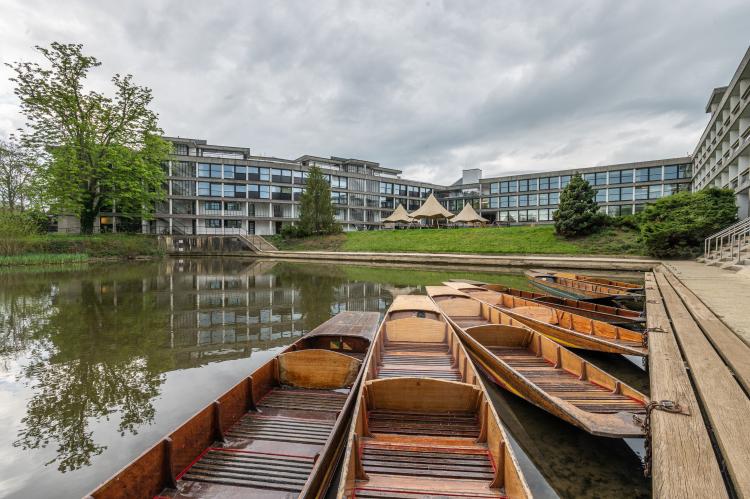
Inside the grounds of Wolfson College, Oxford
Credit: John Cairns
“Thanks to the support of a £5m government grant through Salix, as well as the substantial financial and organisational commitment of Wolfson College itself, we have been able to turn a concrete and glass 1960s building into a place fit for the 21st and 22nd century.
“Our main site is now entirely powered by electricity. We achieved zero carbon last year and we have a community fired up with the belief that the tide can be turned on climate change."
The project also upgraded single-glazed windows to triple-glazing and associated insulation while air source heat pumps replaced outdated gas boilers.
These heat pumps use carbon dioxide as a refrigerant (in a sealed system), allowing for efficient higher-temperature output. The pumps and fabric upgrades have reduced the main estate’s carbon footprint 100 percent according to the college.
At the time of completion, this was one of the largest heat pump programmes to be undertaken in the UK and one of the largest retrofits for an estate of this size and complexity.
Following a system redesign, the college reduced nine district heat exchangers down to two centrally located main units and installed 600m of pipework underneath their estate. Renewable energy now powers the buildings and heats the water.
In addition, the installation of solar panels, along with a green roofing system made from sedum, a flowering succulent, on the academic wing effectively increased the sustainability of college buildings.
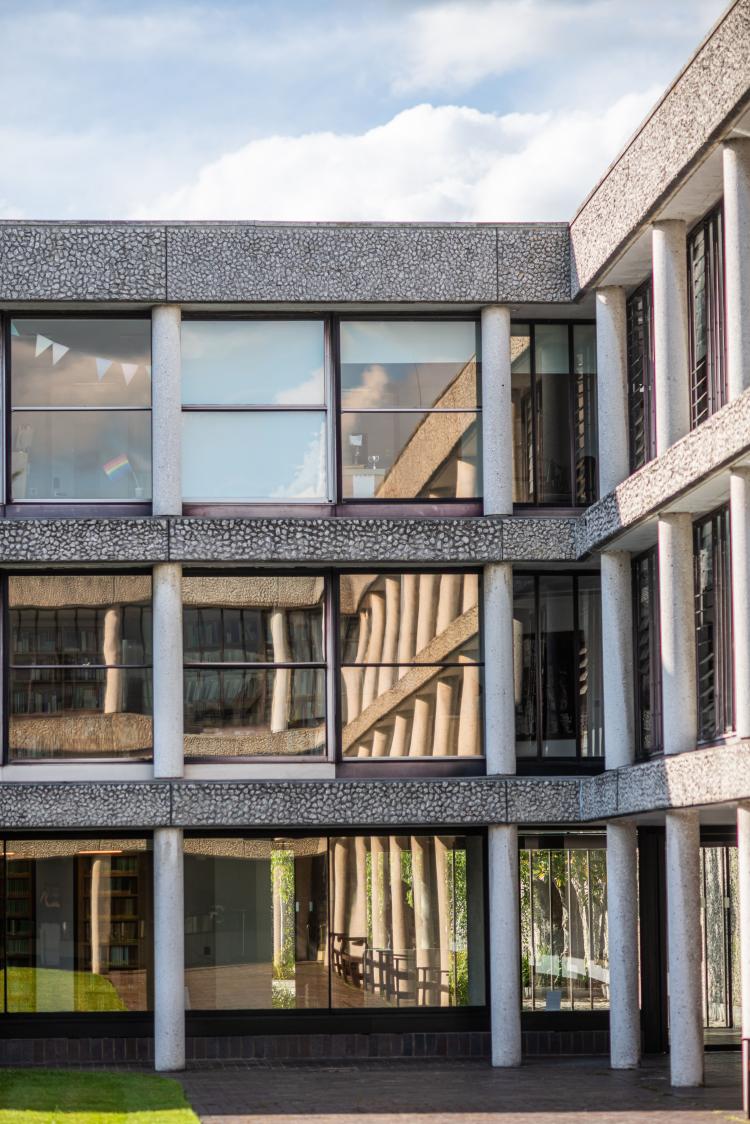
The windows of one of the buildings at Wolfson College, Oxford before the upgrades took place
Credit: John Cairns
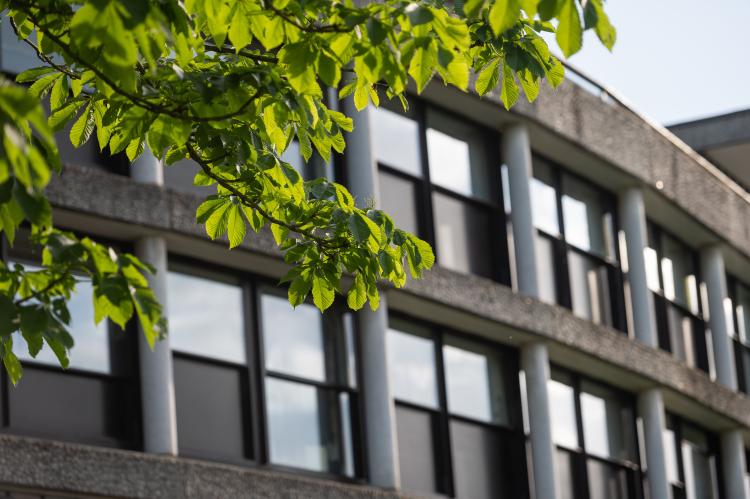
The new triple-glazed upgraded windows of one of the buildings at Wolfson College, Oxford
Credit: John Cairns
Ahmed Ali, communications officer at Salix, said: “We are delighted to see the commitment to decarbonisation at Wolfson College, Oxford.
“The installation of several energy-saving and low-carbon technologies has paved the way for a sustainable future.”
Wolfson College – University of Oxford was one of nine organisations interviewed in a 36-minute documentary celebrating progress toward a net zero public sector in England.
Thank you to Wolfson and Sir Tim Hitchens for participating in this work.
You can watch the full documentary on our YouTube channel.
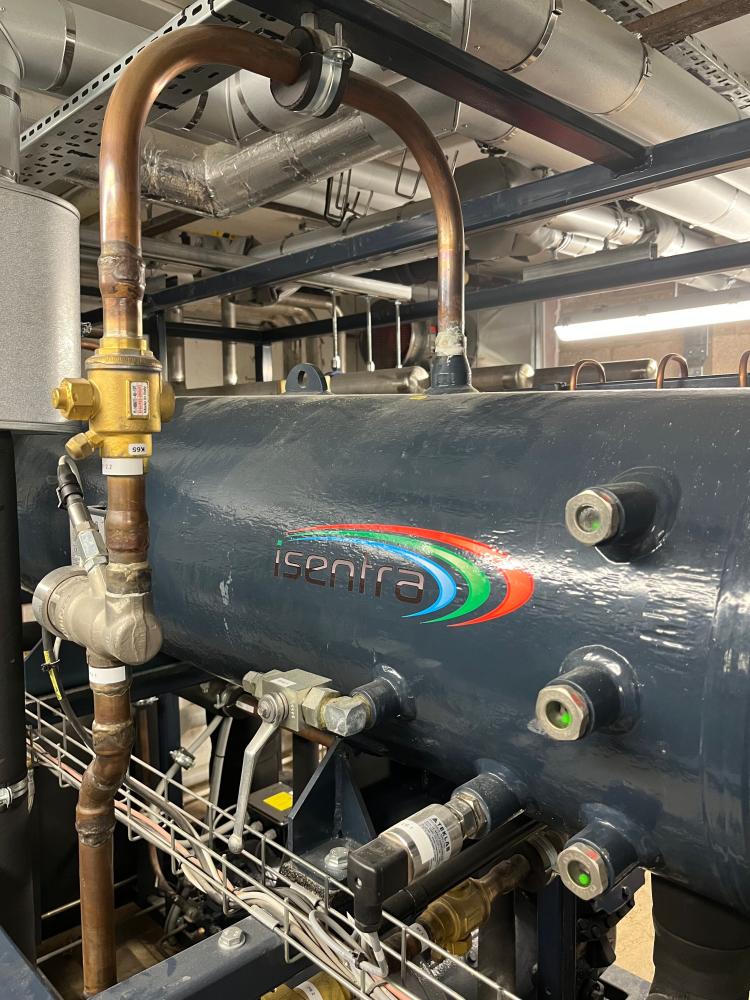
One of the bespoke CO2 heat pumps in the new plant room where carbon dioxide gas is compressed to form a liquid. The heat emitted from this process heats the hot water and heating supplies for the College.
Credit: Wolfson College, Oxford




